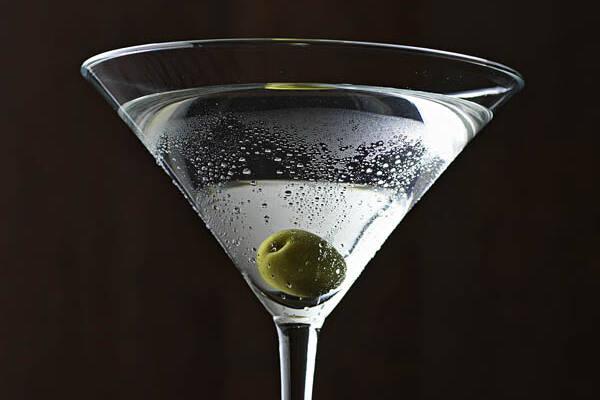
Martini Cocktail
Alessandro Scire CalabrisottoShare
The Martini: A Cocktail of Timeless Elegance
The Martini is more than a drink; it’s an emblem of sophistication, a classic cocktail that has inspired an endless array of debates, variations, and iconic moments. Known for its crisp, potent flavor, the Martini is a drink that transcends generations, evolving yet retaining its aura of mystery and refinement. Whether crafted with gin or vodka, it remains one of the most enduring symbols of cocktail culture, embodying simplicity, elegance, and personal expression.
Origins of the Martini: A Cocktail Shrouded in Mystery
The origin story of the Martini is as elusive as the drink itself. Several theories exist, each presenting its own version of how this iconic cocktail came to be. Some claim that the Martini originated in San Francisco during the 1860s, created by bartender Jerry Thomas. He supposedly concocted a drink called the “Martinez” for a customer heading to the town of Martinez. The Martinez—a mix of gin, sweet vermouth, maraschino liqueur, and bitters—is often regarded as the predecessor to the Martini.
Other accounts suggest that the Martini was first served at the Knickerbocker Hotel in New York, or perhaps the famous Hoffman House, where it evolved into its dry gin and dry vermouth combination by the early 1900s. What remains certain is that, with Prohibition fostering creativity in cocktail-making, the Martini became a staple of underground speakeasies—embodying the glamour of the Jazz Age and the allure of rebellion.
The true birthplace of the Martini may never be definitively known, but its evolution into the drink we cherish today is undeniable. What started as a modest creation has, over time, become the “king of cocktails.”
The Classic Martini Recipe: Simplicity in a Glass
The Martini’s charm lies in its elegant simplicity. With just two primary ingredients—gin (or vodka) and dry vermouth—it offers a blank canvas for personal expression. Here’s the classic gin Martini recipe:
Ingredients:
- 60 ml (2 oz) Gin (or Vodka for a Vodka Martini)
- 10 ml (0.33 oz) Dry Vermouth
- Lemon Peel or Olive (for garnish)
Instructions:
- Chill Your Glass: Begin by filling your Martini glass with ice and water to chill it.
- Mix the Drink: In a mixing glass, combine your gin (or vodka) with vermouth. Fill the glass with ice and stir gently.
- Strain and Serve: Discard the ice from the chilled glass and strain the Martini into it.
- Garnish: For a touch of citrusy fragrance, garnish with a twist of lemon peel, or opt for an olive for a savory note.
The Martini is traditionally stirred to maintain clarity and achieve a smooth, silky texture. However, shaking it, as made famous by James Bond, gives the cocktail a slightly cloudy appearance and adds a brisk, airy texture. It’s a subtle choice that defines the Martini’s versatile character.
Gin vs. Vodka: The Timeless Debate
One of the most enduring discussions in Martini culture revolves around gin versus vodka. The original Martini, of course, was made with gin, which offers a complex, herbaceous flavor profile. The botanicals in gin contribute layers of aroma and taste, creating a drink that evolves with every sip.
Vodka, however, entered the Martini scene in the mid-20th century, bringing with it a cleaner, more neutral flavor. This variation allowed for a purer experience of the vermouth and garnish, appealing to those who preferred a less complex base. Today, both options continue to have their loyal followers, with some swearing by the aromatic qualities of gin and others opting for the smooth simplicity of vodka.
The choice between gin and vodka is ultimately a matter of personal preference, but both styles of Martini offer a distinctly different drinking experience.
Vermouth Ratios: The Dry, Extra-Dry, and Wet Martini
Another point of contention among Martini aficionados is the vermouth ratio. This simple ingredient controls the Martini’s dryness and character:
- Dry Martini: A minimalist approach with just a small splash of vermouth, usually around ½ ounce.
- Extra-Dry Martini: Even less vermouth, often just a rinse of the glass, to emphasize the gin (or vodka) without any interference.
- Wet Martini: A higher ratio of vermouth to gin, creating a softer, more rounded drink.
While the “dry” version has become the standard, some prefer their Martini to be extra-dry, emphasizing the pure essence of the spirit. For those looking for a more balanced drink, the wet Martini offers a more approachable experience.
Garnishes: Olive or Lemon Twist?
The choice of garnish in a Martini speaks volumes. The two most classic options are:
- Olive: Adds a briny, savory element that complements the dry, herbal notes of gin, making it the preferred choice for many.
- Lemon Twist: Offers a refreshing, citrusy aroma that brightens the drink, perfect for those who enjoy a lighter, more fragrant Martini.
For those seeking something unique, the Dirty Martini introduces a splash of olive brine for a salty, savory twist, while the Gibson Martini replaces the olive with a cocktail onion, imparting a touch of sweetness.
The Martini’s Enduring Appeal: A Toast to Elegance
The Martini is more than just a drink—it is a symbol of style and refinement, an experience that reflects personal tastes and cultural history. From the glitzy allure of Hollywood’s golden age to its place in modern cocktail culture, the Martini remains as relevant today as ever.
Every sip of a Martini is a moment of pure indulgence. The delicate balance of gin (or vodka), vermouth, and garnish is a reflection of elegance, simplicity, and the art of balance. It is a drink that transcends time, offering both tradition and innovation in every glass.
Links
- Liquor.com: https://www.liquor.com/recipes/martini/
- Difford’s Guide: https://www.diffordsguide.com/cocktails/recipe/2502/martini
- Imbibe Magazine: https://imbibemagazine.com/martini-history/
- Punch Drink: https://punchdrink.com/articles/history-of-the-martini/
- Liquor.com: https://www.liquor.com/articles/shaken-vs-stirred-martini/
- Liquor.com: https://www.liquor.com/recipes/dirty-martini/
- The Spruce Eats: https://www.thespruceeats.com/history-of-the-martini-759399
